Willie Nelson’s Farm Aid is unlike any other festival. It has always been about more than the music.
Launched by Nelson and fellow musicians in 1985 to respond to the economic crisis that was devastating family farmers and their communities, Farm Aid this year marks its 40th anniversary as music’s longest running concert for a cause.
This year’s Farm Aid takes place Saturday (Sept. 20) at Huntington Bank Stadium in Minneapolis with a bill headlined by Farm Aid’s guiding board members—Nelson, John Mellencamp, Neil Young, Dave Matthews and Margo Price—along with Kenny Chesney, Billy Strings, Nathaniel Rateliff & the Night Sweats, Lukas Nelson, Trampled by Turtles, Wynonna Judd, Steve Earle, Waxahatchee, Eric Burton of Black Pumas, Jesse Wells, Madeline Edwards and the Wisdom Indian Dancers.
Like all the artists who have appeared at Farm Aid before them, these performers will donate their time, expenses and fees to help the family farmers who feed the nation.
Farm Aid fans know that, once a year, Nelson and friends have taken to stages across the country for a high-profile show to benefit America’s independent family farmers.
What they may not realize, even after 40 years, is that Farm Aid has helped influence a profound shift in the cultural landscape of the country. The organization deserves credit for promoting many of the most important changes in food culture in the United States: the growth of farmers’ markets, the spread of farm-to-table restaurants, and the rise of sustainable farming methods that are helping to address climate change. Through the years, with days of sessions preceding the concert itself, Farm Aid has evolved as an impassioned annual gathering for activists involved in environmental, racial and social justice issues, as well as farming.
“It’s the combination of the music and the message that is so important,” Farm Aid’s former executive director Carolyn Mugar once said. “What happens at a Farm Aid concert opens up people’s hearts.”
Farm Aid, of course, is part of a great chain of musicians leveraging their songs for society — from the singers who joined Martin Luther King Jr. for the March on Washington in 1963, to Pete Seeger’s pass-the-basket concerts in the late 1960s to launch the Hudson River Sloop Clearwater, to George Harrison’s Concerts for Bangladesh at Madison Square Garden in 1971, to Bob Geldof’s Live Aid mega benefit for Africa famine relief in1985, to the poverty-fighting Global Citizen Festival launched in 2012, to the FireAid benefits earlier this year, and countless other initiatives through the decades.
Musicians have often offered their talents to meet the needs of the moment— and then moved on. The focus and longevity of Farm Aid is unique.
What also sets Farm Aid apart is the inclusive, charitable and tough spirit of founder Willie Nelson. “Farming was my first job,” he once told Billboard. “I picked cotton. I pulled corn. I knew firsthand what it meant to farm. I knew damn well how tough it was. My farm roots are deep-seated in the soil of my personal story.”
And in his small hometown of Abbott, Texas, where he attended the United Methodist Church, Nelson recalled, “we had a collection box, and even though we were struggling financially, I knew there were folks with far greater struggles. As part of a loving community, I was taught the moral responsibility of helping those in need.”
Farm Aid’s guiding board members “are just like farmers, they never give up,” Mugar has said. “They’re stubborn, they’re clever, they’re strategic and it’s because of them that this organization has been effective.”
So this look back at 40 great moments from 40 years of Farm Aid is about more than just the music. Drawn from Farm Aid’s own timeline and Billboard’s many years of coverage of the festival, this list highlights not just great onstage moments, but also the activism, the artist voices — and the joy of late summer tomatoes from an urban farm. Find it all below.
-
Dylan Speaks, Willie Listens, Farm Aid Launches


Image Credit: Paul Natkin/WireImage On July 13, 1985, at the Live Aid benefit for African famine relief at JFK Stadium in Philadelphia, Bob Dylan took the stage for a late-evening acoustic set with Keith Richards and Ronnie Wood of the Rolling Stones. In an offhand remark, Dylan said, “I hope that some of the money that’s raised for the people in Africa, maybe they can just take a little bit of it — maybe one or two million, maybe — and use it, say, to pay the mortgages on some of the farms that the farmers here owe to the banks?” Willie Nelson later recalled to Billboard, “The question hit me like a ton of bricks.” With the impossibly short lead time of six weeks, Nelson staged the first all-star Farm Aid concert in Champaign, Ill., on Sept. 22, 1985.
-
Willie, Neil and John


Image Credit: Getty Images The first Farm Aid concert in 1985 played to 80,000 fans and featured an all-star bill including Dylan, Billy Joel, Bonnie Raitt, B.B. King, Loretta Lynn, Roy Orbison, Johnny Cash, Waylon Jennings, Tom Petty — and Neil Young and John Mellencamp. Young and Mellencamp would team up with Nelson as the core of the Farm Aid board to help guide the organization for the next four decades. The first concert raised $7 million, and Nelson wrote the first check on the Farm Aid account to the National Council of Churches in the amount of $100,000 for food pantries, to help feed farm families in seven states.
-
Mellencamp Joins Missouri Blockade


Image Credit: Courtesy of Farm Aid In one of numerous offstage actions taken through the years by Farm Aid’s musicians in support of family farmers, John Mellencamp joined leaders of the Missouri Rural Crisis Center and 14,000 farmers on May 7, 1986, to blockade a U.S. Department of Agriculture Farmers Home Administration Office in Chillicothe, Mo,. to protest unfair lending practices.
-
Farm Aid Goes on the Road


Image Credit: Peter Bischoff/Getty Images Across the 40 years of Farm Aid, the organization has staged full-scale benefit concerts every year — well, almost. After a second show was held on July 4, 1986, in Manor, Texas (just outside Austin), and a third on Sept. 19, 1987, in Lincoln, Neb. (featuring the Grateful Dead via satellite feed), Willie Nelson took Farm Aid on the road for 16 of his own show dates in 1989, talking with like-minded musicians (including German country star Tom Astor, above) and holding press conferences in each city to bring attention to the ongoing farm crisis, local farm issues and future farm policy.
-
An Environmental Link Grows


Image Credit: Paul Natkin/WireImage At the Hoosier Dome in Indianapolis — in Mellencamp’s home state of Indiana — Farm Aid IV took place on April 7, 1990, and saw Neil Young reunite with David Crosby, Stephen Stills and Graham Nash. Broadcast live on The Nashville Network, the benefit lineup also included Bonnie Raitt, Elton John, Don Henley and Garth Brooks. For the first time, organizers focused on the important link between family farming and the environment.
-
Willie Goes Home to Texas


Image Credit: Ebet Roberts/Getty Images Dallas Cowboys owner Jerry Jones extended a welcome to Farm Aid to stage the organization’s fifth benefit at Texas Stadium in Irving, Texas — Willie Nelson’s home state — and a crowd of nearly 40,000 heard more than 50 acts, including Paul Simon, Mary Chapin Carpenter, The Highwaymen, Lorrie Morgan and Ricky Van Shelton.
-
Family Farm Disaster Fund Created


Image Credit: ANDREW HOLBROOKE/Corbis via Getty The spring rains caused the Mississippi and Missouri Rivers to overflow their banks, destroying entire towns — and, by that October, what became known as the Great Flood of 1993 had destroyed 8 million acres of crops and damaged another 20 million farm acres, by one estimate. Farm Aid created the Family Farm Disaster Fund to support organizations that worked directly with farm families stricken by the flood, offering needed help to avoid foreclosure. The organization’s response to climate disasters would only increase in the years to come.
-
Calling on President Clinton


Image Credit: Cynthia Johnson/Getty Images To coincide with its 10th anniversary, Farm Aid hosted a national town hall meeting where family farm leaders urged President Bill Clinton to veto any farm bill that would force family farmers from their land. Afterward, Clinton issued a statement, declaring: “Our nation’s agricultural success comes from the hardworking men and women who till the fields and grow our food, and they deserve our respect, gratitude and support.”
-
Matthews Goes Marching — Into Farm Aid


Image Credit: Paul Natkin/Getty Images Farm Aid marked its 10th anniversary on Oct. 1, 1995, at Cardinal Stadium in Louisville, Ky., with an event that raised $1 million and drew 47,000 supporters to hear Hootie and the Blowfish, BlackHawk, John Conlee, Supersuckers, Steve Earle — and the Dave Matthews Band. The show marked Matthews’ Farm Aid debut, and he joined the organization’s board of directors in 2001.
-
A Hometown Favorite


Image Credit: Paul Natkin/Getty Images Ahead of Farm Aid `96, staged in Columbia, S.C., on Oct. 12, Willie Nelson praised the region’s “rich agricultural tradition and hard-working men and women who struggle every day to make a living on the land. We hope this concert will remind the nation that we need to change the way we think about the food we eat and the people who grow it. It’s important that we have someone there growing the food who cares for the land.” The day’s lineup included the Beach Boys, Martina McBride, John Conlee, Jewel— and Columbia’s own Hootie & the Blowfish.
-
“Factory Farms No!”


Image Credit: Terry Plowman/Farm Aid Willie Nelson had received a letter from then-85-year-old Alice Ginter asking him to get involved in an action against the National Pork Producers Council, for what protest organizers said was its bias in favor of large-scale pork operations, or “factory farms.” So on March 20, 1997, Nelson helped lead a rally in Des Moines, Iowa, that drew hundreds of farmers to the doorstep of the council, delivering the message “Family Farms – Yes, Factory Farms No!”
-
Fighting Racism at the USDA


Image Credit: Scott J. Ferrell/Congressional Quarterly/Getty Images In April 1997, a massive class-action suit, Pigford v. Glickman, was filed by Black farmers charging the United States Department of Agriculture with years of racial bias in its distribution of farm loans and assistance. Longtime Farm Aid partner and grantee, the Federation of Southern Cooperatives, was critical to the settlement of the case in 1999. More than a decade later, Virginia farmer John Boyd Jr., of the National Black Farmers Association, came to Washington, D.C., seeking funding for the settlement.
-
Going Back to Illinois


Image Credit: Paul Natkin Venue drama preceded Farm Aid in 1997 as the show originally scheduled for Irving, Texas, was moved to The New World Music Theater in Tinley Park, Ill. — a return to the state where it was first staged in 1985. The benefit on Oct. 4 included the Dave Matthews Band, John Fogerty, Beck and The Allman Brothers Band.
-
Phish and Neil Young Jam


Image Credit: Paul Natkin/WireImage Farm Aid is legendary for its collaborations between artists and the 1998 benefit, back at Tinley Park, Ill., offered a mighty example. On the bill that year were Steve Earle, the Del McCoury Band, Wilco — and Phish, who teamed up with Neil Young for an incendiary 19-plus-minute jam on “Down by the River.”
-
Remember Farmers at the Ballot Box


Image Credit: Ebet Roberts/Redferns Before the 15th anniversary Farm Aid on Sept. 17, 2000, in Bristow, Va. — 35 miles outside of Washington, D.C. — Willie Nelson offered a nonpartisan Letter to America urging voters and candidates to remember family farmers on Election Day. Farm Aid 2000 at the Nissan Pavilion presented Arlo Guthrie, Sawyer Brown, Alan Jackson, Travis Tritt, the Barenaked Ladies — and a reunited Crosby, Stills, Nash and Young.
-
A Concert for America


Image Credit: Ebet Roberts/Redferns Staged in Noblesville, Indiana on Sept. 29, 2001 — just 18 days after the terrorist attacks of Sept. 11 —Farm Aid 2001 was billed as A Concert for America. “”I’m proud to bring Farm Aid back to Indiana, America’s heartland,” said Indiana native John Mellencamp. “The enthusiasm and support for farmers in this part of the country is what inspires us all to keep working to protect rural America and all of the farms, families, and small businesses that make this country thrive.” Farm Aid announced a special fund to rebuild farmers markets destroyed in the World Trade Center attack.
-
Willie Nelson Joins Toby Keith


Image Credit: Ebet Roberts/Redferns With the nation still reeling from the attacks of Sept. 11, 2001, Toby Keith’s controversial payback song “Courtesy of the Red, White and Blue (The Angry America)” went to No. 1 on the Hot Country Songs chart in July 2022. Keith performed the song with Willie Nelson when Farm Aid `02 came to Burgettstown, Pa. on Sept. 21, 2002.
-
“The Government Is Not Supporting Its People”


Image Credit: Jason Squires/WireImage Farm Aid `03 in Columbus, Ohio on Sept. 7, offered a lineup including Emmylou Harris, Hootie & the Blowfish, Los Lonely Boys, Brooks & Dunn, Billy Bob Thornton, Daniel Lanois — and Sheryl Crow, who has become a frequent return performer and advocate for the organization. Speaking to Billboard backstage at Farm Aid in 2017, she voiced a prescient concern about the direction of the nation: “There is a chasm is in the [lack of] belief in science,” Crow said. “It’s not just going to affect farmers, it’s going to affect everything and everyone. If you have a government that is not supporting science, then it’s really not supporting its people.
“The great hope, really,” she continued, “is that, on a state level and even on a city level, there is a lot that can be done that doesn’t rely on the [federal] government.”
-
Kitchen Table Advocate


Image Credit: Paul Natkin/WireImage When Willie Nelson and his fellow artists formed Farm Aid in 1985, Nelson recruited veteran activist Carolyn Mugar to run the organization. “The earliest Farm Aid files are all stained with spaghetti sauce, since I did that work at my kitchen table,” she once told Billboard. Then she set off across the country, speaking to farmers at their kitchen tables. Mugar was recognized for her work on Billboard’s Women in Music list in 2020, the 35th anniversary of Farm Aid. Upon her retirement in 2024, Mugar was succeeded by Shorlette Ammons and Jennifer Fahy, who were named co-executive directors.
-
Jesse Jackson Backs Farm Aid


Image Credit: Farm Aid In the days leading up to Farm Aid on Sept. 18, 2004, at the White River Amphitheater on the Muckleshoot Indian Reservation south of Seattle, the Seattle Post-Intelligencer reported that Willie Nelson had been talking to activist Jesse Jackson, former President Jimmy Carter, Sen. Dennis Kucinich and other national figures “about a land reform idea that would resurrect the old Homestead Act, allowing homesteaders to farm currently unused land to grow corn and soybeans for the production of bio-diesel fuels.” Jackson appeared with Nelson and the Farm Aid board at their pre-concert press conference.
-
Responding to Hurricane Katrina and More


Image Credit: Justin Sullivan/Getty Images When Hurricanes Katrina, Rita and Wilma devastated the Gulf Coast states in 2005, Farm Aid responded. Within days of Katrina’s impact, Farm Aid sent emergency grants and truckloads of donated food to farm families in Texas, Louisiana, Alabama and Mississippi, and sponsored five trainings to enable farmers to access federal disaster programs. By year’s end, Farm Aid had sent more than $230,000 to local family farm service organizations that deliver aid to farm families.
-
Barack Obama Introduces Wilco


Image Credit: Paul Natkin/Getty Images Farm Aid marked its 20th anniversary at Tinley Park, Ill. on Sept. 18, 2005, with the publication of a history of the organization, A Song for America (edited by Holly George-Warren), and a concert lineup that included Arlo Guthrie, Buddy Guy, Emmylou Harris, James McMurtry, John Mayer, Kenny Chesney, Los Lonely Boys, Susan Tedeschi, Widespread Panic — and Wilco, who was introduced by newly elected U.S Senator Barack Obama.
-
“Texican Rock ‘n’ Roll”


Image Credit: Rick Diamond/WireImage Willie Nelson paid tribute to the Mexican influence on the music from his native Texas when Los Lonely Boys was booked for Farm Aid in 2005 in Tinley Park, Ill., playing the style of Tejano music the group called “Texican rock’n’roll.” The Boys returned to the Farm Aid lineup on Sept. 30, 2006, in Camden, N.J., on a bill with Jerry Lee Lewis, Arlo Guthrie, Gov’t Mule, Steve Earle and Allison Moorer, Steel Pulse, Shelby Lynne, Nitty Gritty Dirt Band, Jimmy Sturr & his Orchestra and more.
-
Homegrown Concessions Debuts in New York City


Image Credit: G. Gershoff/WireImage As Farm Aid prepared for its New York City debut on Randall’s Island on Sept. 9, 2007, the organization may have listened to Willie Nelson’s 1993 duet partner Frank Sinatra when he sang, “If you can make it here, you can make it anywhere.” The New York festival marked the launch of the organization’s Homegrown Concessions, under the guidance of Farm Aid associate director Glenda Yoder, demonstrating that family-farm-sourced food could feed concertgoers on a huge scale. It also hosted the first Homegrown Village, featuring exhibits about soil, water, energy, food and farmers.
-
Farm Aid Streams for the First Time


Image Credit: Darren Hauck/Getty Images Willie Nelson is known for his duets with, well, just about everybody. But Steven Tyler? The Aerosmith front man was a surprise guest at the 25th anniversary Farm Aid staged Oct 2, 2010, at Miller Park in Milwaukee, and he and Nelson performed “One Time Too Many” and “Once Is Enough.” The bill also included Jason Mraz, Jamey Johnson, Norah Jones, Jeff Tweedy, Kenny Chesney, Band of Horses, Robert Francis, Amos Lee and Lukas Nelson and Promise of the Real. It was streamed live on YouTube for the first time.
-
“They Know Now, We Weren’t Kidding”


Image Credit: Paul Natkin/WireImage Fresh off one of the hottest stadium tours of the summer, Kenny Chesney was one of the most eagerly awaited artists at Farm Aid staged on Sept. 22, 2012, at Hersheypark Stadium in Hershey, Pa., uniting his No Shoes Nation with the Farm Aid community as he had twice before. (Chesney will perform at Farm Aid 40 on Sept. 20 in Minneapolis.)The 2012 bill also included Jack Johnson, Jamey Johnson, Grace Potter & the Nocturnals, ALO, Lukas Nelson & Promise of the Real, Pegi Young & the Survivors and Dale Watson. At the 2012 event, Willie Nelson offered the first of a number of tour bus interviews he has given to Billboard at Farm Aid. “They know now, after all these years, that we weren’t kidding,” said Nelson, “There really is a serious problem out there.”
-
Pete Seeger Surprises Farm Aid Crowd


Image Credit: Paul Natkin/Getty Images At Farm Aid in Saratoga Springs, N.Y. on Sept. 21, 2023, John Mellencamp had just performed “Pink Houses” and remarked that the song had been inspired by “This Land Is Your Land” by Woody Guthrie. ““I’m so humbled,” he continued, “to bring out the guy who really made that song what it is… Ladies and gentlemen, Pete Seeger!” To a roaring ovation, the 94-year-old folk icon took a solo round on his banjo for “If I Had a Hammer”— with thousands of backup singers in the crowd — and then Seeger welcomed Farm Aid’s guiding foursome, Nelson, Mellencamp, Young and Matthews, for “This Land Is Your Land.” Farm Aid was Seeger’s last major public performance before his death the following January.
-
Jack Johnson Cows Around


Image Credit: Paul Natkin/Getty Images Before Pete Seeger’s remarkable surprise performance at Farm Aid in Saratoga Springs, N.Y. in 2013, fans had already enjoyed a lineup that included Amos Lee, Jamey Johnson, Kacey Musgraves, Toad the Wet Sprocket, Sasha Dobson, Carlene Carter and Jack Johnson, who made an usual appearance early in the day. Accompanied by Farm Aid then-executive director Carolyn Mugar, the singer took a tour of the activities at Homegrown Village — dressed as a cow. He greeted unsuspecting fans, patting one young boy on the head with his hoof.
-
“Civil Rights Activists Have Become Examples for Us All”


Image Credit: Paul Natkin/Courtesy of Farm Aid On Sept. 13, 2014, Farm Aid returned to the South with an all-star lineup at the Walnut Creek Amphitheatre in Raleigh,N.C. including Jack White, Gary Clark Jr., Preservation Hall Jazz Band, Jamey Johnson, Delta Rae, Carlene Carter and more. But the Raleigh gathering was notable also as Farm Aid organizers aligned their mission of preserving family farms with another struggle with deep roots in North Carolina and the South: the civil rights movement.
“We all felt that we could not come to this region that has such a profound history without taking note of it,” Farm Aid’s then-executive director Carolyn Mugar told Billboard. “Civil rights activists have become examples for all of us, in how to organize and how to work. So we had a two-day gathering [earlier in the week] bringing people together, many of whom are based in the civil rights movement. They are farmers and farm advocates now.”
-
“Don’t Mess With Us!”


Image Credit: Gabriel Grams/Getty Images When Windy City native Mavis Staples took the stage at the 30th anniversary of Farm Aid on Sept. 19, 2015, she made no secret of her joy at her hometown hosting this milestone event. “Chi-ca-go!” she shouted. “Farm Aid Nation! Don’t mess with us!” The benefit at FirstMerit Bank Pavilion at Northerly Island also featured performances by Imagine Dragons, Jack Johnson, Kacey Musgraves, Old Crow Medicine Show, Jamey Johnson, Holly Williams, Lukas Nelson & Promise of the Real, Insects vs Robots, Ian Mellencamp and the Blackwood Quartet.
During the pre-show press conference, Farm Aid honored Mona Lee Brock, then 83, who recalled once answering the crisis hotline call of a financially distraught farmer. “The second sound I heard,” she said, “was the clicking of a gun.” She kept that farmer on the line, talking, until family could arrive to help.
-
Farm Aid Activists Show Up Early


Image Credit: Thom Duffy To truly appreciate what Willie Nelson and friends have accomplished with Farm Aid, activists know to show up for the concert early — days early. With Farm Aid taking place Sept. 16, 2017, at the KeyBank Pavilion in Burgettstown, Pa., outside Pittsburgh, hundreds of farmers and family farm advocates from across the country arrived the previous Thursday for strategy sessions and tours of local farms — including one in the shadow of the one of the region’s remaining steel mills. “The three main health problems in this country are obesity, heart disease and diabetes — and these are all food-related,” said Shelly Danko-Day, who was then an urban agriculture and food policy advisor for the city of Pittsburgh. “We all have to help our neighbors and our communities eat better.”
-
“Now Is the Time to Act”


Image Credit: Brian Bruner/Courtesy of Farm Aid Despite the divisiveness of the 2016 presidential election, Farm Aid in 2017 (at the KeyBank Pavilion outside Pittsburgh) proved to be at least one place in America uniting blue and red, urban and rural, for a common cause: supporting the men and women who grow the nation’s food. Backstage, artists expressed their concerns. “There’s a silver lining to everything,” Lukas Nelson said, sitting aboard his tour bus. “In the political environment that we are in right now, people on both sides have realized that we’ve been failed. So people are taking initiatives themselves to reach out to their neighbors and create their own economies, basically. No matter what side of the political spectrum you’re on, you realize that now is the time that we need to act. People are realizing that in farming and in other areas too.”
-
“Everyone Was Losing Their Farm When I Was a Kid”


Image Credit: Brian Bruner/Courtesy of Farm Aid Farm Aid in 2017 outside Pittsburgh marked the return of Nathaniel Rateliff and the Night Sweats to the festival stage. A Missouri native, often seen wearing a red T-shirt bearing the words “Stop Factory Farms,” Rateliff has described how much Farm Aid’s mission means to him. “Everybody was losing their farm in our region when I was a kid,” he told Billboard. “Even up until 1997, I was working in a plastics factory with [Night Sweats bassist] Joseph Pope and there was an old man working with us, who had been a pig farmer. He said, ‘I’ll butcher and give you a pig for $80.’ The factory farms had overproduced so much pork that they’d driven the price down and he lost his farm.”
-
An Urban Farmer’s Gift


Image Credit: Thom Duffy The day before Farm Aid arrived at the Alpine Valley Music Theatre in East Troy, Wis., for a Sept. 21, 2019 benefit, organizers toured an urban farm in Milwaukee named Alice’s Garden. It is located in an historically Black neighborhood of the city, where officials demolished homes and businesses for an interstate highway — the construction of which community activists then blocked. In the afternoon light at Alice’s Garden, an immigrant woman from Burma, who spoke no English, was at work on her small farm plot when a Farm Aid supporter passed her by. She reached out and offered a gift of three late-summer tomatoes.
-
“It’s Activists I’m Singing For”


Image Credit: Brian Bruner Bonnie Raitt sang at the first Farm Aid concert in 1985 and had returned several previous times when she joined the bill for the Sept. 21, 2019 benefit at the Alpine Valley Music Theatre in East Troy, Wis. Backstage, in conversation with Billboard, she said, “When I read the news and go, ‘Oh my God, I can’t take one more piece of bad news,’” Raitt said she focuses instead on “the enduring love affair I have with people out in the field that are working day-by-day in these grassroots organizations.” These are the advocates, fighting “to stop toxins in the environment, to get organic food into [poor] neighborhoods, to get corruption out of city governments,” says Raitt. “These little battles that people are fighting all the time. It’s those activists that I’m singing for and raising funds for. That’s my job.”
-
The Midwest Farmer’s Daughter


Image Credit: Taylor Hill/Getty Images In 1986, the farm foreclosure crisis that led to the creation of Farm Aid also took the Illinois family farm from young Margo Price’s grandparents, forcing them off their land “into a tiny ranch-style on the edge of town,” she later wrote. “From their kitchen window you could see perfect rows of corn in fields that belonged to someone else.” In 2016, Price released her acclaimed debut album Midwest Farmer’s Daughter — and in 2021 she joined the board of Farm Aid.
-
“Young Farmers Are Committed to the Environment”


Image Credit: Mark Sagliocco/Getty Images For four decades now, Farm Aid has been singularly focused on a piece of American life that holds at least part of the answer to the climate crisis — family farming. For that reason, Willie Nelson’s annual benefit may well be the nation’s most important music festival right now. “There’s this new farming culture that is growing,” Dave Matthews told Billboard before Farm Aid’s 2022 festival in Raleigh, N.C., “young farmers who are committed to the environment. If you do farming in a more natural way, it can contribute to the health of the planet. Climate change should be the conversation, no matter what we’re talking about,” he says.
-
“This Land Fed a Nation”


Image Credit: Paul Morigi/GI for National Sustainable Agriculture Coalition A year after Farm Aid was launched, in 1986, John Mellencamp recorded “Rain on the Scarecrow,” the harrowing song of farmers driven to bankruptcy, which captured the urgency behind the organization’s mission. The song was just as relevant when Mellecamp performed it on March 7, 2023, blocks from the White House. The Farm Aid co-founder had come to support activists marching down Pennsylvania Avenue, calling for renewal of the Farm Bill — which has a massive influence on how the nation’s food is grown — with a new focus on the climate, economic and racial equality and financial sustainability for farmers. (Those efforts were set back in the Reconciliation Act signed into law this past July 4).
-
Bringing It All Back Home


Image Credit: Courtesy of Farm Aid. The stage was unlit after Neil Young concluded his Farm Aid set at the Ruoff Music Center in Noblesville, Indiana, on Sept. 23, 2023, with the crowd expecting Willie Nelson’s show-closing set to follow. Instead, in the darkness, beneath the stark projection of a silhouetted windmill, a black-clad Bob Dylan walked out, with no introduction, joined by members of The Heartbreakers for a short but intense set, beginning aptly with “Maggie’s Farm,” followed by “Positively 4th Street” and “Ballad of a Thin Man.” Farm Aid veterans recognized the significance of Dylan’s return, nearly four decades after his Live Aid remark inspired Nelson to launch the annual benefit for family farmers.
-
40 Years On, Standing With Workers


Image Credit: Scott Streble It was touch and go: Days before the 40th anniversary Farm Aid festival Saturday (Sept. 20) at the Huntington Bank Stadium in Minneapolis, the organization announced the event might not take place at all. On Sept. 4, members of Teamsters Local 320 — which represents public sector employees including custodial, maintenance, food service and sanitation staff — voted to reject a proposed contract extension from the University of Minnesota and go on strike. Artists and staff of Farm Aid — led by its board of Willie Nelson, Neil Young, John Mellencamp, Dave Matthews and Margo Price — would not cross the picket line. On Sept. 12, Farm Aid posted that Willie Nelson had reached out to Gov. Tim Walz.
One day later, festival organizers posted on Instagram that the university and union had reached an agreement. “For four decades,” the organization stated in its announcement, “Farm Aid has stood with farmers and workers. Today’s agreement is a reminder of what can be achieved when people come together in the spirit of fairness and solidarity.”


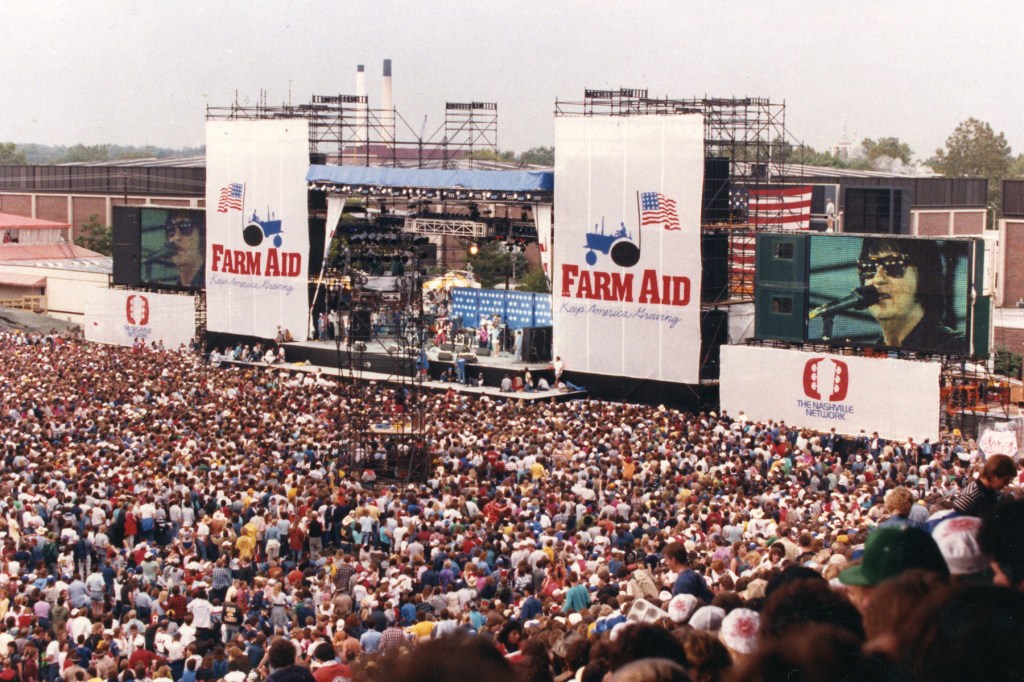
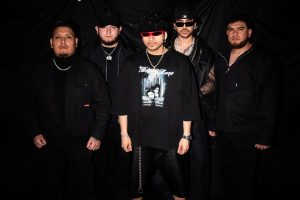
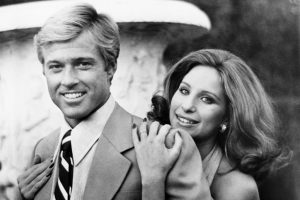
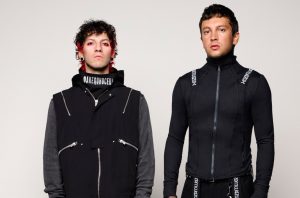
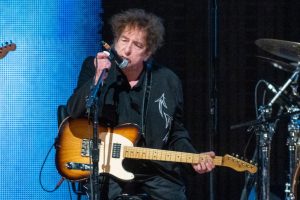
Comentarios